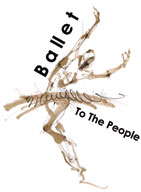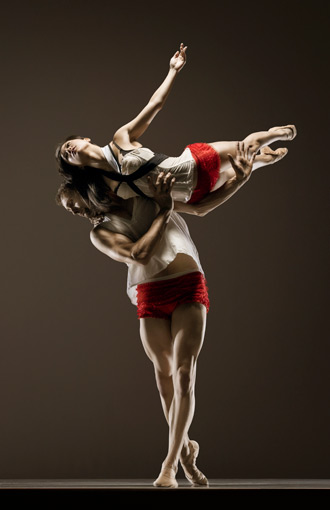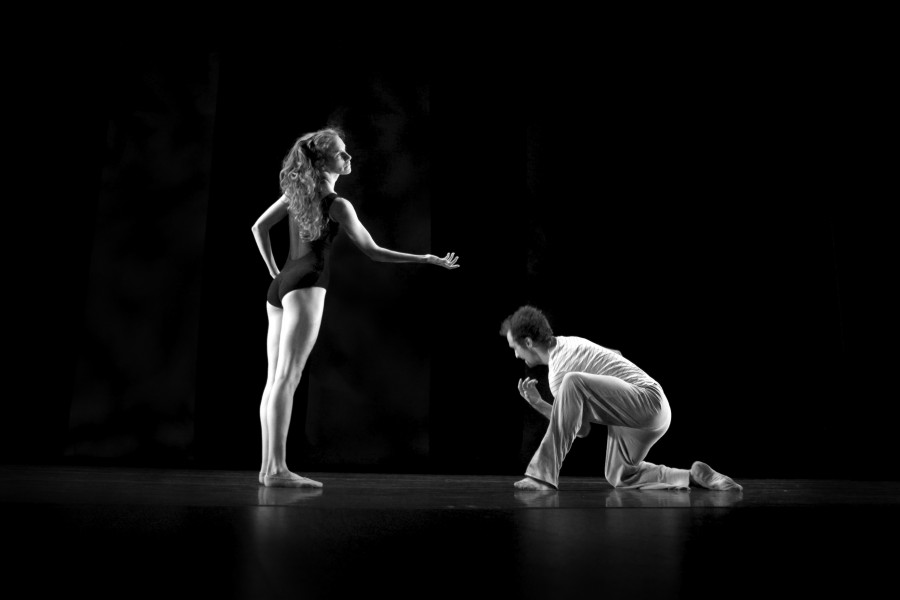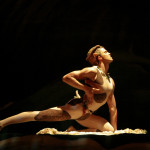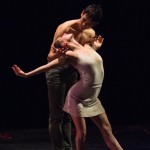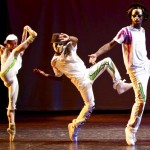In January, San Francisco dance lovers had a rare glimpse of Robert Moses performing his own work, in a seven-minute solo entitled The Slow Rise of a Rigid Man. In a tight spotlight on the dark stage, against lyrics by the gruff-voiced David Worm that proclaimed that he was fresh out of ideas –
Got no more alibis / Got nothing to feel / Got no messages that must be spread / Got no blood on my hands from the dead / Got no hope for a better tomorrow / I got no way to stop the sorrow
– this marvelous piece of irony unfolded as the imposing Moses, in street clothes, repeatedly cradled his right knee, negotiated the floor like a Tai Chi warrior, and carved sculptures out of air with his enormous, poetic hands.
Moses’ ineffable Profligate Iniquities opened the evening, set to a suite of Sephardic romances.
A reprise of Nevabawarldapece closed the program. The puzzling title makes sense if you say it out loud after a couple of beers. Program notes tell us that this work “explores critical moments of change in America’s liberation movements, insurrections, and revolts,” the score a patchwork of folk, blues, funk, and Afro-Celtic tunes as well as lengthy harangues by activist poet Carl Hancock Rux, crammed with economic statistics and multiple-choice questions about our sexuality.
Unlike Profligate Iniquities, however, which meandered genially through fields of intoxicating Sephardic polyrhythms, Nevabawarldapece derailed early on.
– More in our review on Bachtrack. –
